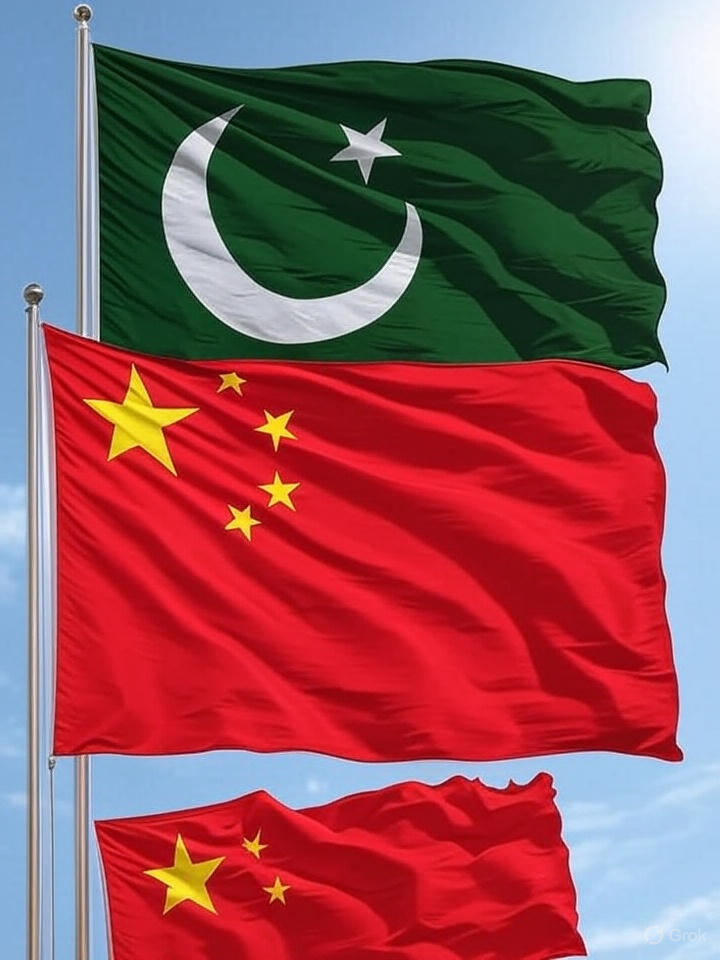Recent attacks targeting Chinese nationals in Pakistan have sparked serious diplomatic friction, culminating in public pressure from Beijing on Army Chief General Asim Munir to address persistent security failures. In response, Islamabad has faced escalating scrutiny over its ability to safeguard Chinese citizens working on major infrastructure projects.
Pattern of Attacks on Chinese Nationals
Chinese citizens in Pakistan have repeatedly been victims of militant violence. The most recent occurred in March 2024, when a suicide bombing in Shangla District, Khyber Pakhtunkhwa, killed five Chinese engineers and their Pakistani driver while en route to the Dasu hydropower project part of the China Pakistan Economic Corridor (CPEC) (Globedge).
Later in October 2024, a suicide attack near Karachi airport killed at least two Chinese nationals and injured several others. The Baloch Liberation Army (BLA) claimed responsibility, alleging attacks on Chinese linked projects in Sindh and Balochistan (Reuters).
Additionally, in March 2024, a bombing outside Karachi had already killed multiple Chinese staff at CPEC affiliated sites. Simultaneously, Pakistani authorities arrested suspects and formed a joint investigation team (JIT) with Chinese involvement (efsas.org, Reddit).
Beyond terrorism, internal security lapses have also contributed such as a Pakistani guard accidentally shooting Chinese nationals at a Karachi mill, which raised concerns about guard vetting and training (AP News).
Beijing’s Reaction & Pressure on Munir
During his first trip to China following tensions with India, Army Chief General Asim Munir was publicly challenged by Chinese Foreign Minister Wang Yi, who demanded explanations for failed protections of Chinese personnel, infrastructure, and institutions in Pakistan (www.ndtv.com).
Munir responded by stressing the “solid as a rock” brotherhood between Islamabad and Beijing and committing that the Pakistan military would take “all necessary measures” to safeguard Chinese citizens. His remarks were aimed at reaffirming Pakistan’s resolve and diplomatic loyalty (www.ndtv.com).
Islamabad’s Security Measures & Failures
Pakistan has long insisted it manages Chinese protection internally, rejecting Chinese offers to deploy private security contractors on its soil. In response, internal units like the Special Security Division (SSD) were formed with around 12,000 troops and support from provincial police to guard CPEC projects. However, analysts and Beijing have repeatedly pointed out gaps in operational effectiveness, particularly during convoy movements in volatile regions (Dawn).
Following the Shangla attack, Prime Minister Shehbaz Sharif chaired an emergency meeting with civilian and military leadership, including Gen Munir, pledging severe punishment for negligence and reaffirming counterterrorism efforts. SOPs were tightened and monthly audits mandated from district level authorities onward (SAMAA TV).
In April 2024, President Zardari similarly reassured China of enhanced protection and cooperation during a meeting welcoming Chinese investigators into the JIT probing the Dasu attack (Dawn).

Why This Matters
- Diplomatic Strain: Beijing’s public admonishment of Munir signals China’s frustration with perceived Pakistani negligence marking a rare diplomatic rebuke between long standing strategic partners.
- Protection Failures: Despite created security infrastructure, convoys and worksites remain high risk pointing to enforcement lapses in SOPs and agency coordination.
- CPEC under Threat: Repeated attacks target the backbone of bilateral cooperation CPEC and raise concerns over investment confidence from Chinese stakeholders.
- Counterterrorism Credibility: Pakistan’s credibility in combating separatist and Islamist groups is increasingly tied to its ability to protect foreign nationals.
- Domestic Impact: Political opponents and analysts in Pakistan leverage these incidents to critique civil military coordination and leadership accountability.
Summary
China has long viewed Pakistan as its “all weather strategic partner,” but persistent security incidents have tested that trust. Despite extensive internal security architecture including elite military units and SOP reforms terrorist strikes in Khyber Pakhtunkhwa and Sindh/Balochistan have continued to prove deadly for Chinese nationals. Army Chief General Asim Munir, visiting Beijing amid regional tensions, was publicly questioned by Chinese officials about these repeated failures. He assured that Pakistan’s armed forces would bolster protection and root out negligence. Pakistan’s civilian leadership, including Prime Minister Shehbaz Sharif and President Zardari, have echoed similar commitments in high level meetings and investigations. Still, these responses have triggered concerns in Beijing and among international investors: if Chinese nationals remain vulnerable despite SOPs and special divisions, it raises deeper questions about Pakistan’s internal security capacity and reliability.

